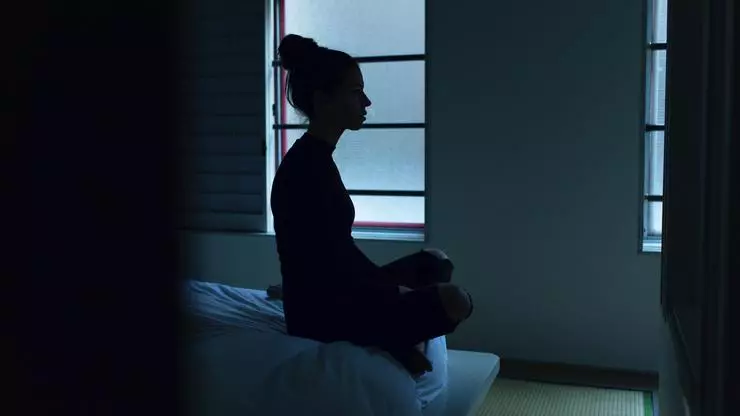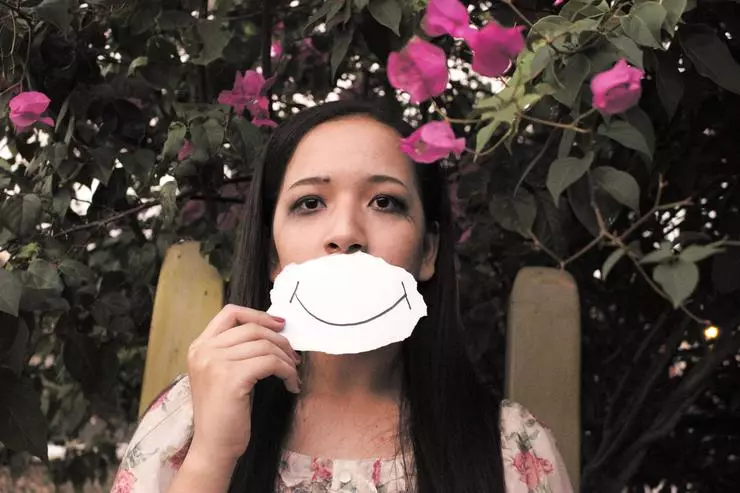Depression is a widespread mental health problem that affects human ability to function in everyday life. If you have experienced depression in the past, it is possible to repeat the same state. Although the treatment of depression, such as therapy with a psychologist or medicines, works efficiently, studies also showed that about a third of people who stop the treatment, for one year again facing depression.
What is relapse?
Under the relapse of depression it is understood by the repetition of symptoms after remission - the period of return to the initial functioning, usually a duration of 16-20 weeks. Although it is possible that those who will happen relapse will experience the same symptoms as during their first depressive episode, it is also possible that the symptoms they will experience will be completely different next time.
Signs of recurrence of depression
For this reason, it is important to take into account various potential signs or symptoms of the recurrence of depression. Below is a complete list of potential features to be paid attention to, and the following sections contain a detailed description of these signs and symptoms to help you determine if they affect you.
Bad mood
Irritability
Loss of interest or pleasure
Brain fog
Changes in sleep
Social isolation
Feeling useful
Increase or weight loss
Fatigue
Pain
Suicidal thoughts

If your bad mood does not have an obvious cause, lasts more than 2 weeks and is present every day, perhaps you are worried about the recurrence of depression
Russia has a hotline of emergency psychological assistance center of the Ministry of Emergency Situations of Russia by phone - 8 (495) 989-50-50 (free of charge in Moscow). Call it if you feel instability in mental condition or your loved ones need support, and you are afraid to harm. Also learn about other options: during quarantine in Moscow there is a volunteer line of psychological assistance by phone 8 (800) 700-88-05. Additionally, you can hold free consultations at school, university or give direction from work - feel free to ask. And now back to the symptoms.
Bad mood
The feeling of depression, sadness or bad mood is one of the distinguishing signs of depression and its relapse. Typical symptoms - tears, sense of hopelessness, devastation. These feelings are a normal reaction to obvious reasons, such as loss of work, loss of a loved one, breaking relationships or divorce. However, if your bad mood has no obvious reason, it lasts more than 2 weeks and is present every day, perhaps you are experiencing a relapse of depression. This is especially true if your bad mood or feeling of sadness interfere with everyday life. For example, it may be difficult for you to go to work because of the attacks of crying or you feel that life will never be better. These are signs that a bad mood may indicate a relapse of depression.
Irritability
Do you feel that you are annoyed easier than before? Shout on people or discover that they are ready to even fight? If so, you may experience irritability as a symptom of a relapse of depression. Most likely, you do not tolerate stressful situations. This means that you are inclined to react with irritation or anger, when encountering small inconveniences. In other words, everything around can cause irritation from you and make arguing with others.
Loss of interest or pleasure
Another distinctive sign of the relapse of depression is the loss of interest in things that you used to see pleasant. It may be an attraction to a partner, sex with him, hobbies, meetings with friends or all you have previously liked.
Brain fog
Most people with depression are experiencing something known as a brain fog. Brain fog means slowing the thinking and loss of concentration. You may have problems with working or even maintaining the conversation.
Changes in sleep
Sleep is another aspect of your health, which can be easily affected during the recurrence of depression. If you notice a change in your dream, such as problems with falling asleep, awakening at night, lack of rest or too much sleep, then perhaps you are worried about the recurrence of depression. Some people who suffer from depressions find out that as soon as their heads will touch the pillows, they begin to reflect on their day and that there is no way or causes them stress. This, in turn, can make it difficult to sleep and lead to insomnia. It can also strengthen fatigue and make it difficult to get out of bed in the morning.
Social isolation
If you avoid social situations or feel isolated or lonely during public events, then you may have a relapse of depression. Social isolation can negatively affect your relationship, which, in turn, can aggravate your depression. If you specify the conversation seems too much effort, get out of the house - an unlevued feat, or you just part in your room much more than it is considered acceptable behavior, then you may have social problems. This sign may be associated with loss of pleasure, as you do not have any pleasure from communicating with other people.
Feeling useful
If you feel that you have a low self-esteem that you do not deserve or not worthy of the best in life or that you are generally overly critical in relation to yourself, then the feeling of your own worthlessness may indicate a relapse of depression. This problem may also be associated with a sense of guilt, focusing on its disadvantages or failures instead of positive advances and excessive internal criticism. If you constantly blame yourself for something bad, perhaps your inner critic and hate is a sign of a more serious problem, including the relapse of depression.
Increase or decrease weight
Sudden weight changes, like weight loss or weight gain, may indicate a relapse of depression. Other signs may be loss of interest in the food that you once loved, or the lack of efforts for healthy nutrition or regular exercise. People who are struggling with a weight gain or weight gain because of the recurrence of depression can also be overeating or ease with other disorders of food behavior. If you notice that your eating habits or weight have changed, it may be a sign that depression is coming back.
Fatigue
Are you tired of just thinking about getting out of bed, wash the dishes or pay bills? When you feel fatigue, you may seem that everything becomes much more difficult. For example, such a routine work, like a folding of linen, becomes an insurmountable task that you simply cannot perform quickly. If you notice that all day is lazy, fatigue can be a sign that depression is coming back.
Pain
Depression is experiencing not only in the mind. Some people also notice that they enhanced losses and pain in the appearance of signs of depression. These pains can take various forms and move through the body. Below are some types of pains that may occur during a relapse of depression:
Muscle pain
Headaches
Stomach pain
Breast pain
Backache
Pain in the limbs (for example, in legs or hands)

Social isolation can negatively affect your relationship, which, in turn, can aggravate your depression.
Suicidal thoughts
Finally, suicidal thoughts are a faithful sign that you have severe depression. If so, it means that your depression has returned. In the case of severe depression, you probably have also lost interest in things that you used to like. You can also feel hopelessness regarding your position in the world. All this indicates a relapse of depression.
Causes of recurrence of depression
If you are worried about the relapse of depression, you may be interested, why your depression returned. It is true that depression can return at any time, even if you take medicine or treated. It can also return without any obvious external triggers or stress factors. However, sometimes the recurrence of depression follows an external event. Below are some possible triggers or reasons for the recurrence of depression.
The experience of the death of a loved one or another significant loss
Experience of a stressful life event (for example, dismissal from work, divorce, the birth of the first child, preparation for graduation exams in school)
Hormonal changes associated with the stage of your life (for example, puberty, pregnancy, menopause)
Inability to use strategies for survival or termination of their use (for example, diary, regular exercises, negative thoughts management)
Changes in drugs that you take
Sleep disorders (for example, the beginning of a new work requiring a change in sleep mode)
Contact your doctor for help if you find more than three symptoms. Please do not let this disease on samonek.
